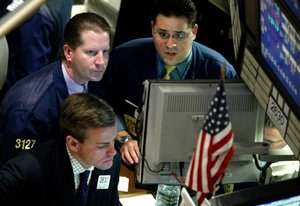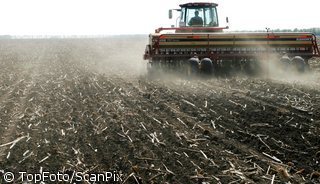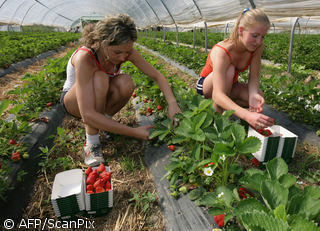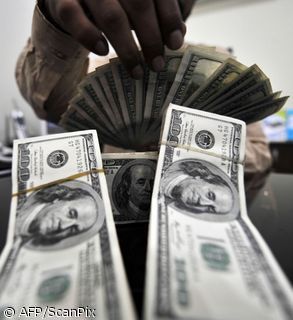Russia's antitrust authority signaled Tuesday that it might block a bid by German industrial giant Siemens to take a controlling stake in a strategic engineering company, citing national security concerns
Published:
16 February 2005 y., Wednesday
Russia's antitrust authority signaled Tuesday that it might block a bid by German industrial giant Siemens to take a controlling stake in a strategic engineering company, citing national security concerns, Interfax reported.
"Our position on this deal is well known. Aside from anti-monopoly issues, there are questions of the country's security and defense capability," the news agency quoted federal anti-monopoly agency chief Igor Artyomov as saying. "Naturally, Siemens' dominance in this sector would increase somewhat with its arrival on the Russian market," he said.
Silovye Mashiny (Power Machines) mostly makes energy equipment, but some of its plants also produce parts for the Russian defense sector, including the nuclear fleet. Siemens and the Russian holding Interros, the current owner of Power Machines, announced last July an agreement to create a joint venture that would control about 71 percent of the Russian turbine manufacturer. The deal was announced at a meeting between Russian President Vladimir Putin and German Chancellor Gerhard Schröder. But the Russian authorities have since appeared to reconsider the German takeover, because of reluctance to allow a company deemed strategic to pass into foreign hands.
Šaltinis:
dw-world.de
Copying, publishing, announcing any information from the News.lt portal without written permission of News.lt editorial office is prohibited.
The most popular articles
 In another move to strengthen the financial system, the Commission is proposing controls on credit rating agencies - private companies that evaluate financial risks for investors.
more »
In another move to strengthen the financial system, the Commission is proposing controls on credit rating agencies - private companies that evaluate financial risks for investors.
more »
 Monday 10 November saw a large report land on the desk of MEPs in the Budgetary Control Committee.
more »
Monday 10 November saw a large report land on the desk of MEPs in the Budgetary Control Committee.
more »
 EU wants G20 meeting to pave the way for reform of the international financial system.
more »
EU wants G20 meeting to pave the way for reform of the international financial system.
more »
 New Yorkers reflect on the election of Barack Obama as the 44th President of the United States.
more »
New Yorkers reflect on the election of Barack Obama as the 44th President of the United States.
more »
 The ability of the EU's common agriculture policy (CAP) to cope with the challenges of affordable food and climate change was discussed in Brussels 3-4 November.
more »
The ability of the EU's common agriculture policy (CAP) to cope with the challenges of affordable food and climate change was discussed in Brussels 3-4 November.
more »
 European Union economic growth should be 1.4% in 2008, half what it was in 2007, and drop even more sharply in 2009 to 0.2% before recovering gradually to 1.1% in 2010 (1.2%, 0.1% and 0.9%, respectively, for the euro area).
more »
European Union economic growth should be 1.4% in 2008, half what it was in 2007, and drop even more sharply in 2009 to 0.2% before recovering gradually to 1.1% in 2010 (1.2%, 0.1% and 0.9%, respectively, for the euro area).
more »
 There are an estimated 4-8 million immigrants working illegally in the European Union.
more »
There are an estimated 4-8 million immigrants working illegally in the European Union.
more »
 Hit by economic turmoil and the sharp global downturn, growth in the EU slows almost to a halt.
more »
Hit by economic turmoil and the sharp global downturn, growth in the EU slows almost to a halt.
more »
 The top priority is to cushion the impact of the financial crisis on jobs, purchasing power and prosperity of EU citizens.
more »
The top priority is to cushion the impact of the financial crisis on jobs, purchasing power and prosperity of EU citizens.
more »
 The International Monetary Fund has approved short-term financing to help emerging market economies weather the global financial storm.
more »
The International Monetary Fund has approved short-term financing to help emerging market economies weather the global financial storm.
more »